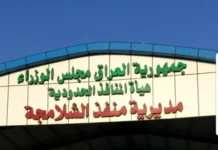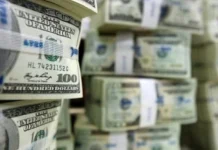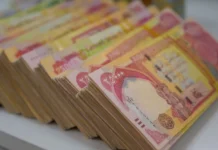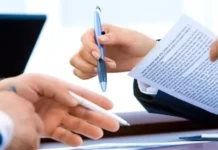CandyKisses: Al-Yasiri: The US administration is working hard to destroy the Iraqi economy
Information/Baghdad…Political and security analyst Mohammed al-Yasiri on Thursday accused the US administration of continuing its hostile policy to destroy the Iraqi economy.
Al-Yasiri told Al-Maalouma that “the US Treasury Department continues to tighten the noose on the flow of dollars to the Central Bank of Iraq and reduce cash liquidity.”
He pointed out that “the US administration is working hard to restrict the Iraqi government and dissuade it from demanding the removal of its occupying forces from the country.”
He continued, “The US tightening on Iraq on the dollar clearly confirms the lie of the so-called friendship of the United States of America to Iraq.
“The US Treasury Department imposed economic sanctions on eight Iraqi banks recently, preceded by sanctions on fourteen others, and prevented them from dealing in the dollar currency, as the reasons behind the imposition of such sanctions were not explained.
CandyKisses: The first day of Eid al-Fitr.. Determining the day of sighting the crescent by astronomical calculations
Baghdad today – follow-up
The 18th day of the holy month of Ramadan has entered today, Thursday (March 28, 2024), with a number of theories circulating about astronomical calculations of the time and date on which the Eid al-Fitr crescent can be seen.
The International Astronomy Center published two maps of the moon’s path and the areas where it can be seen, saying in its report, as follows:
The possibility of seeing the crescent of Eid al-Fitr on Tuesday, April 9, 2024
– Visibility of the crescent is impossible from areas in red due to moonset before sunset and/or due to surface conjunction after sunset.
– The crescent is visible using a telescope only from areas located in blue.
– The crescent can be seen using a telescope from the pink-colored areas, and it is possible to see the crescent with the naked eye in the event of complete atmospheric clarity and observation by an experienced observer.
– The crescent is visible with the naked eye from the areas located in the green color.
– The crescent is not visible with the naked eye or by telescope from uncolored areas, although the moon sets after sunset and the surface conjunction occurs before sunset, due to the lack of illumination of the crescent and/or its proximity to the horizon.
– Please note that the figures show that the crescent can be seen in areas between latitudes 60°N and 60°S.
************
Tishwash: Everyone in Iraq wants the Sudanese visit to Washington to be successful, even the factions!
Once again, Washington is talking about the continued threat of ISIS in the region, days before Muhammad Al-Sudani’s expected visit to the White House.
Foreign Minister Fouad Hussein says that the withdrawal of American forces from Iraq “needs time” and “knowing the type of forces.”
No party inside the country objects to these statements, which seem to undermine the main goal of the visit, which is “removing the American forces.”
Last Friday, the White House announced that Sudanese’s visit to Washington would take place on April 15, a date postponed from last year.
US Secretary of State Anthony Blinken and Fouad Hussein, who preceded the Prime Minister to Washington a few days ago, affirmed their countries’ determination to continue the partnership in fighting ISIS.
Blinken said before entering the meeting room at the State Department: “Despite the good work we have done over the years in dealing with this threat, the horrific attack that occurred near Moscow a few days ago reminds us that ISIS is still a force that we must continue to deal with.” with her”.
He pointed out that what happened in Moscow is a reminder “that we must continue to deal with ISIS.”
For his part, the Iraqi Foreign Minister said, “It is a pleasure to be here and to hold discussions on various topics related to our bilateral relations.”
He continued, “We were partners in the fight against ISIS, and we will remain partners in this battle,” noting that continuing the fight against terrorism “is our duty, and we have done a wonderful job in defeating the so-called ISIS terrorist state.”
According to a US State Department statement, the meeting comes in preparation for the meeting of the Supreme Coordination Committee between Washington and Baghdad, and the expected visit of Prime Minister Muhammad al-Sudani to Washington, where he will meet with US President Joe Biden.
In this regard, Blinken said, “We look forward to Al-Sudani’s visit to see President Biden in a few weeks.”
He added that the Supreme Coordination Committee between the two countries “is an important part of the strategic framework agreement that guides the comprehensive relationship between Iraq and the United States.”
He continued, “Our partnership includes many issues that have a direct impact on the lives of Iraqis as well as Americans… everything, from water to energy to the environment to services.”
He revealed that the US administration is “very much looking forward” to preparing for that meeting (the coordination committee) as well as dealing with some of the direct challenges facing the two countries.
He said, “For us, Iraq is an important partner for the stability of the region.”
Baghdad had announced a few days ago that it would discuss five files in Washington, one of which was the issue of the withdrawal of American forces, which it confirmed was a file that “does not accept maneuvering or courtesy.” In this context, Rahim Al-Aboudi, a member of the Al-Hikmah Movement, told Al-Mada: “Sudani’s visit to Washington is important in the hope that the work of the joint Iraqi-American committees will shift to scheduling the withdrawal and moving to comprehensive, security, and economic relations.”
The two parties engaged in more than one dialogue in Baghdad about assessing the situation in the country, 7 years after Iraq declared “victory over ISIS,” while there is conflicting information about Washington’s approval to withdraw forces.
Foreign Minister Fuad Hussein had said a few days ago in Washington that withdrawing forces from Iraq “needs a period of time and knowledge of how to withdraw and the type of forces withdrawn.”
He pointed out that “these questions need answers, and the answers come from both sides, and as a result there will be an agreement between the American and Iraqi sides, and according to the joint agreement, the new policy will be approved.”
Analysts at home, such as Ihsan Al-Shammari, head of the Center for Political Thinking, who told Al-Mada, believe that “the United States is not ready now to withdraw forces.”
Western reports also indicated that Biden may agree to withdraw “part of the coalition forces, but not the American ones,” on the condition of protecting his country’s forces in Iraq.
On the other hand, he interpreted the words of the US Ambassador to Iraq, Elena Romanowski, a few days ago about the “danger of ISIS” as a prior refusal to discuss the issue of withdrawing forces.
Romanowski told Reuters, “The work of the US-led military coalition with Iraq to completely defeat the organization is not over yet.” The words of Blinken and Romanowski were not commented on by any party in Iraq, and even the factions remained silent.
Abu Ali Al-Askari, spokesman for the Hezbollah Brigades, had warned that not removing the coalition forces from Iraq “will open the door to hell,” but he made a threat days before announcing the date of Al-Sudani’s visit.
It is now believed, according to what is circulating in political circles, that remaining silent on the American positions is because everyone wants the visit to be a success. The government, the coordination framework, and even the factions that do not seem ready to lose new leaders due to American raids.
Rahim Al-Aboudi says: “Strengthening the partnership with the United States will be very important for Iraq, as it will allow American companies to enter the investment market and other companies affiliated with the coalition countries.”
On the other hand, Haider Al-Salami, a member of the Foreign Relations Committee in the House of Representatives, points out that what matters to his committee is that “Iraq returns to being an effective state in the region, and that issues of sovereignty are discussed clearly with Washington.” link





